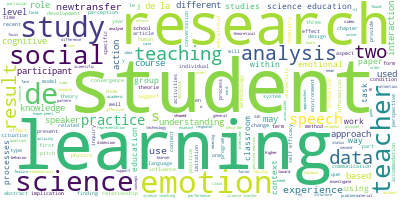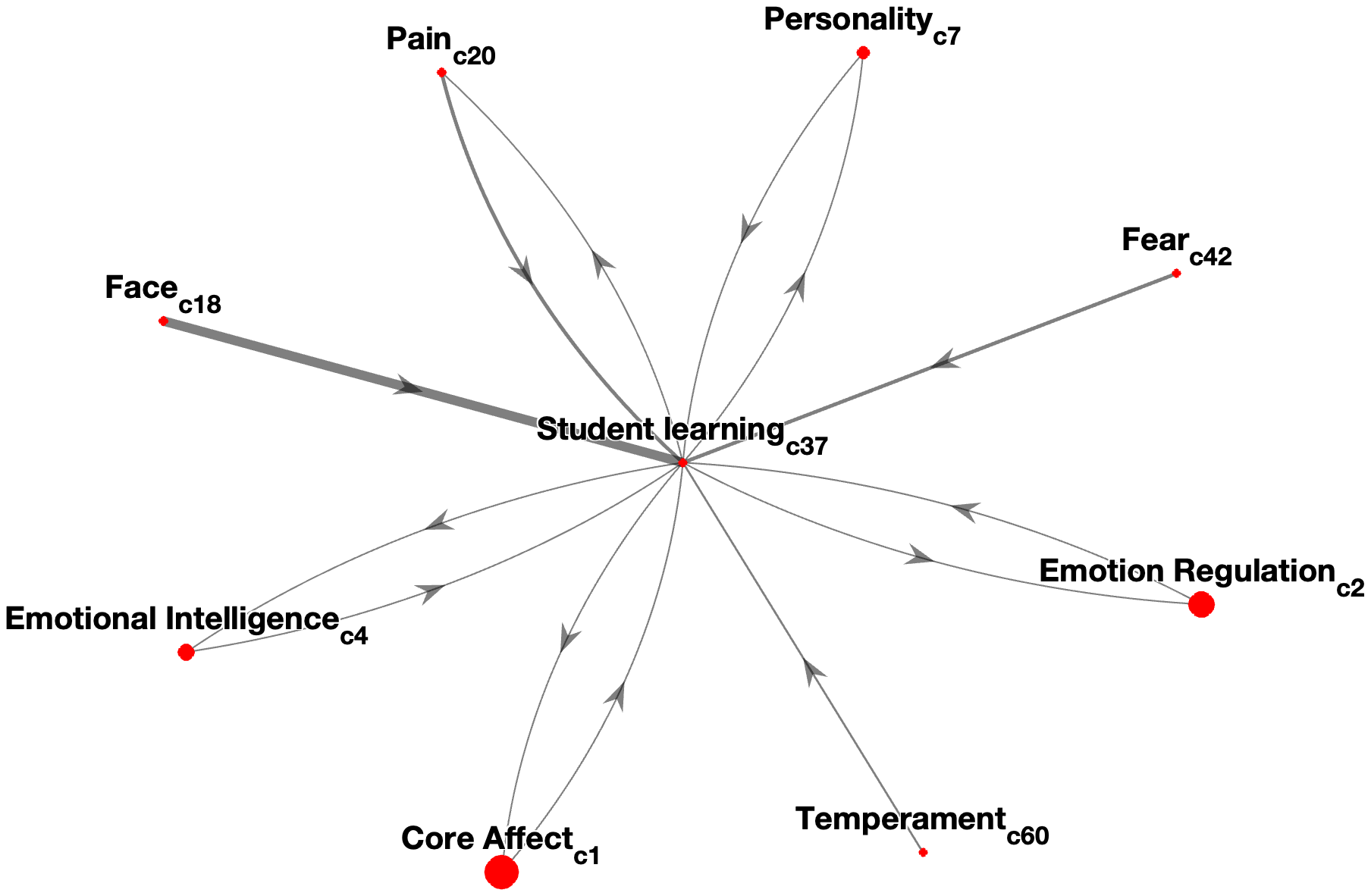Community 37: Student learning
Key words: Student learning, teaching, emotion

Interconnectedness

Missed connections
Community pairs with high citation-based distance but low semantic distance
From |
To |
Diff. Score |
Citation-Based Distance (Z) |
Semantic Distance (Z) |
|---|---|---|---|---|
|
2.59 |
1.47 |
-1.12 | ||
|
2.58 |
1.31 |
-1.26 | ||
|
2.52 |
1.29 |
-1.23 | ||
|
2.49 |
1.29 |
-1.2 | ||
|
2.43 |
1.24 |
-1.19 |
Central articles
-
Voice pitch and amplitude convergence as a metric of quality in dyadic interviews
S. W. Gregory, S. Webster, Gang Huang. 1993.
-
A nonverbal signal in voices of interview partners effectively predicts communication accommodation and social status perceptions.
S. W. Gregory, S. Webster. 1996. Journal of personality and social psychology
-
Prospective primary teachers’ self-efficacy and emotions in science teaching
María Brígido, Ana Belén Borrachero, M. L. Bermejo, V. Mellado. 2013.
-
How emotions shape the relationship between a chemistry teacher and her high school students
Flávia Maria, T. Santos, E. Mortimer. 2003.
-
Evaluating the Relation of Vocal Accommodation in Conversation Partners' Fundamental Frequencies to Perceptions of Communication Quality
S. W. Gregory, K. Dagan, S. Webster. 1997.
-
Episodic Feelings and Transfer of Learning
R. Nemirovsky. 2011.
-
Emotions in prospective secondary teachers when teaching science content, distinguishing by gender
Ana Belén Borrachero, María Brígido, Lucía Mellado, E. Costillo, V. Mellado. 2014.
-
Affect : a functional perspective
A. Iran-Nejad, G. Clore, Richard J. Vondruska. 1981.
-
Verifying the primacy of voice fundamental frequency in social status accommodation
S. W. Gregory, Brian E. Green, Robert M. Carrothers, K. Dagan, S. Webster. 2001.
-
Spectral analysis of candidates' nonverbal vocal communication: Predicting U.S. presidential election outcomes
S. W. Gregory, T. J. Gallagher. 2002.